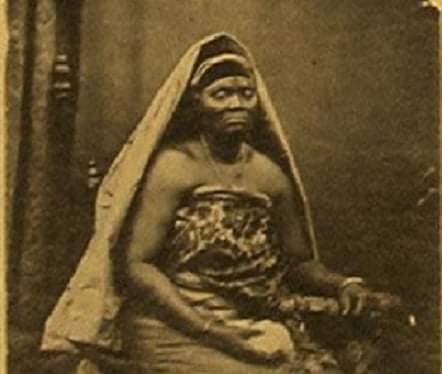Trends
Meet Efunroye Tinubu, the astute slave trader
In this article, we will discuss everything you need to know about Efunroye Tinubu, her life birth and death. She was born Efun…

In this article, we will discuss everything you need to know about Efunroye Tinubu, her life birth and death. She was born Efunporoye Osuntinubu Olumosa around 1805 in the Yoruba town of Abeokuta, Western Nigeria.
Efunroye Tinubu was an astute, shrewd and ambitious Nigerian business tycoon who wielded enormous economic and political power across Western Africa.
She married a man and had two sons with him, but he died soon thereafter. Newly a widow and single mother, she started trading tree bark and leaves to make a living.
Without a doubt, Efunroye Tinubu must have learnt valuable market skills from her grandmother, Osunsola, who traded in tree bark, roots, herbs, and leaves. She must’ve also learned business skills from her mother, Nijeede, who had been a food seller.
Notwithstanding, in 1833 Tinubu remarried Adele, an exiled Oba of Lagos. With this marriage, she began to accumulate economic and political power.
The two moved to the coastal city of Badagry, where Tinabu, using her husband’s connections, built a successful business empire trading salt and tobacco from Europeans for slaves from Abeokuta.
She moved to Lagos after Adele returned to his throne in 1835. Unfortunately, Adele died just two years later in 1837, making Tinubu a widow for the second time. She helped install Adele’s son, Oluwole, as the new king and married his military advisor, Yesefu Bada.
Efunroye Tinubu also continued to expand her trade network by monopolizing slaves and palm oil and offering firearms obtained from the Europeans, which increased her wealth during the Yoruba Wars of the 1840s and 1850s.
Throughout Nigerian history, Efunroye Tinubu was never celebrated until recently when her descendants were led by Chief Akinfolabi Akindele, of Adamakin Investment Limited who is also a great-grandson of Madam Efunroye Tinubu, decided that the time had come to celebrate her.
She fell from power in Lagos when she challenged British Consul Benjamin Campbell who railed against her economic hegemony and secret slave trading with Europeans and Brazilians.
Efunroye Tinubu in turn publicly castigated Campbell for his infringement on royal authority and sovereignty in Lagos.
She organized a plot to remove Consul Campbell but before it could be implemented, Campbell confronted her with British gunboats in May of 1856 and demanded her exile from Lagos. In the face of superior British military power, Tinubu was forced back to Abeokuta.
In Abeokuta, Efunroye Tinubu identified with the United Board Management Government and expanded her business activities to include a wide range of wares, such as arms and ammunition.
Her influence began to be felt in Abeokuta politics when she contributed to the successful defence of the Egba town during the Dahomey invasion of 1863. For her support, she was given the title of Iyalode (first lady) in 1864. The title placed her in a position of power, which enabled her to boldly participate in Egba affairs.
Efunroye Tinubu opposed colonial policies in Lagos outright. She was the first woman to play a proactive part in the resistance to British rule during the colonial period.
However, Efunroye Tinubu died in 1887. Tinubu Square on Lagos Island, a place previously known as Independence Square, is named after her. She was buried at Ojokodo Quarters in Abeokuta.
RECOMMENDED ARTICLEs
